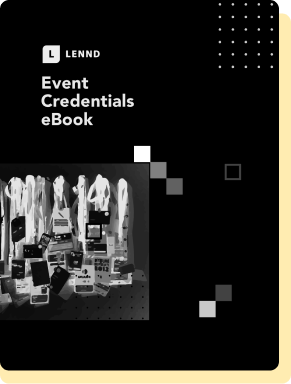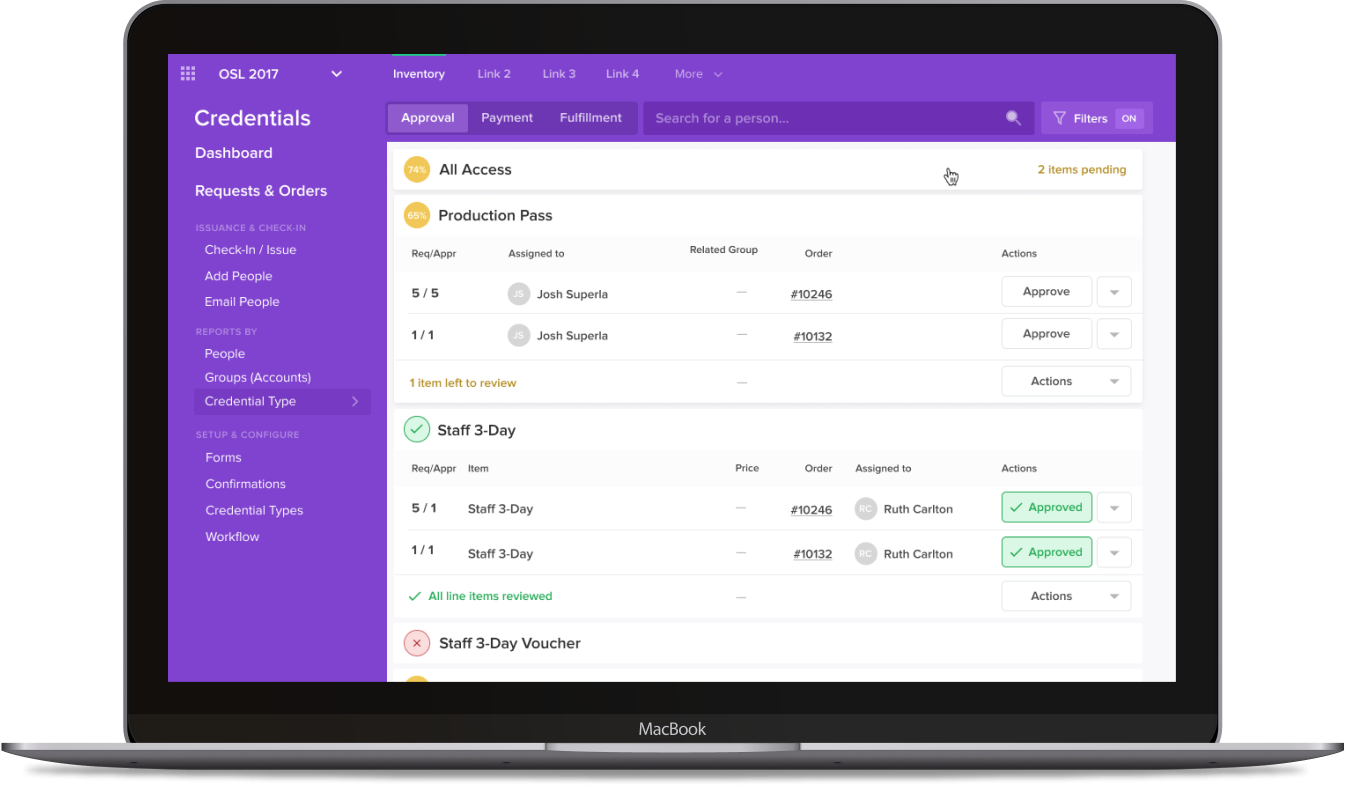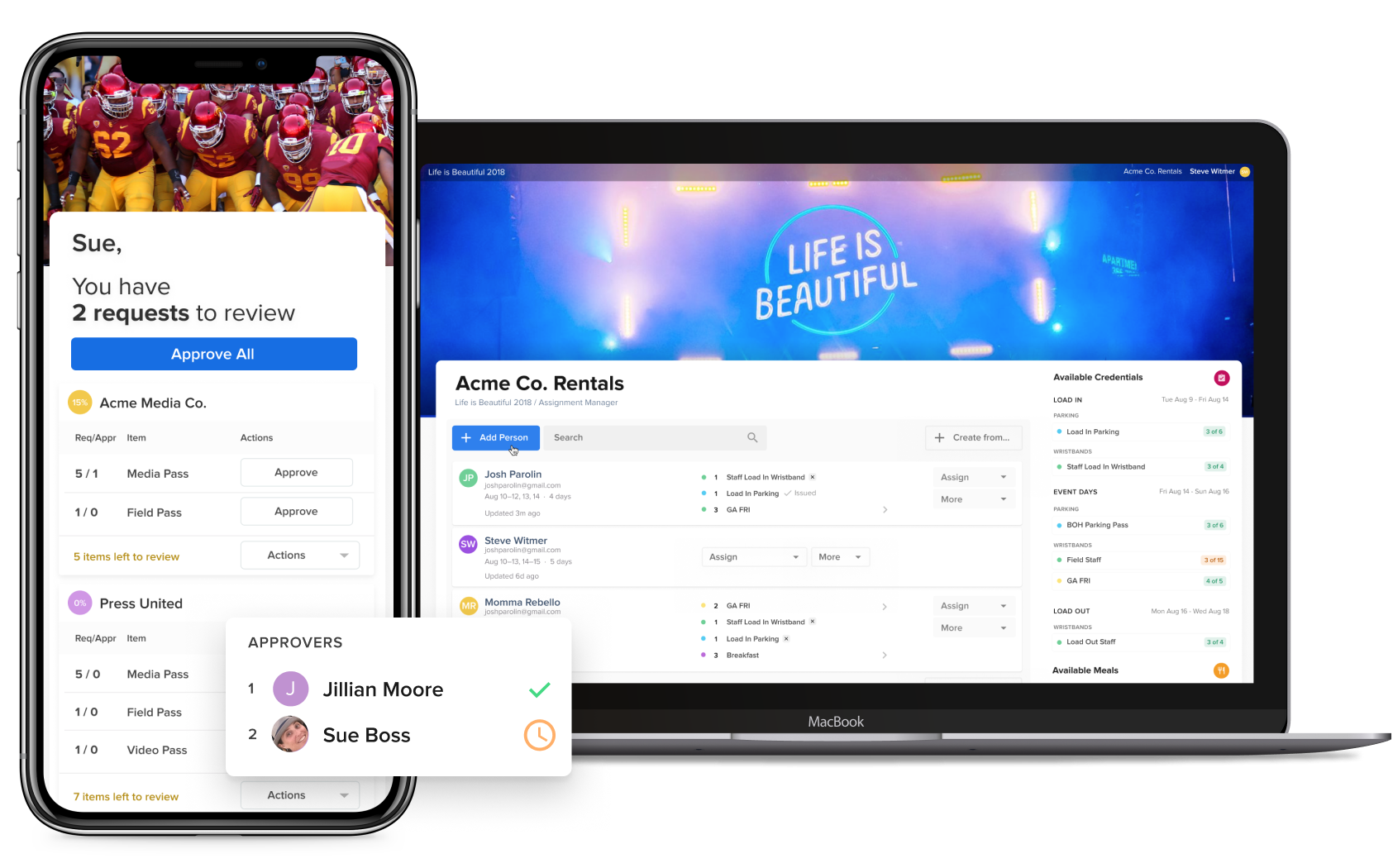What's the old saying?
Sometimes the best way to learn is from our mistakes. But it's even better to learn from other people's mistakes? Close enough, you get the point.
We sat down with over 30 of the most experienced Credential and Box Office Managers in North America from all corners of the event spectrum: Sports, Festivals, Fairs, Racing, etc. and asked them this question:
“What are some of the biggest mistakes they have seen people make throughout the Credential Management Process?”
We compiled 11 themes that kept coming up in their responses. If you have any you want to share, don't hesitate to email me: Chris@LENND.com - who know's I may have to do a second post.
1 — Asking requestors for too much information
Make it really simple for the end user. We all know the more questions you put in a form that somebody has to fill out to register, the less likely they are to complete it. Whether it's a patron or a staff member, making that process as simple as possible is going to increase the likelihood of it being done correctly, increasing your overall registration.
Tenille Goodspeed
Business Intelligence Manager, Republic Live
2 — Assuming you don’t need to repeat yourself
Include descriptions of credential items in as many places as possible. Make sure you start with clear instructions for staff before requesting. Then make sure the same info can be found in the software as staff are requesting, and when approvals and fulfillment are being done on the back end. Clear definitions are key for folks requesting the right pass types from the get-go and repeating it in different places doesn’t hurt.
Brandy Blaylock
SVP Event Management, Danny Wimmer Presents
3 — Keeping requesters in the dark for too long
Anything you can do to communicate with requestors directly, whether that’s a targeted email campaign, pulling the list of people who are receiving credentials and emailing them beforehand with what to expect, where to check-in, what you need to have in hand - ie: print this out, be prepared with legal ID, etc. Anything you can do to prepare those people so that they have a higher likelihood of getting it right on their end.
Rebecca Throne
Ticket Operations Manager, Burning Man & Black Rock City
4 — Not explaining why you rejected a request
A mistake I see many people make, is not giving a requestor adequate information to help make the request process more clear. This leads to people requesting things they shouldn't have, which leads to a lot of wasted time, discrepancies on-site, etc. I think it's really important to have documented policies in place and be willing to share them. It also helps (when appropriate) if you give the requestors a clear, concise access grid. I also like to give a description that clearly details when the credential is typically used and what type of person, role or vendor would request the particular credential. I also like to give some examples whenever possible.
Evan Gross
Database Manager, Outside Lands Music Festival, Life Is Beautiful & Okeechobee Music Festival
If you're interested in taking a look at how our next generation credential management platform can help secure your event and/or organization, CLICK HERE
5 — Being too rigid and not allowing for some flexibility and name changes at the last minute
I think that regardless of how organized you think you are, there is always that exception to the rule. If this is the case, then having a team of people who understand the Will Call process is crucial to ensuring fewer mistakes are being made at the pick-up location. Often there is a demand for more tickets & passes once the event kicks off and just being able to meet the demand and being able to process the request quickly, will help avoid longer wait times.
Lena Jouldjian and the Box Office Team
San Diego County Fair
6 — Being too afraid to say no
You can’t be afraid to say to a requestor that you’re still reviewing and you have to get back to them after talking to the people who might have the answers. If you’re unsure about something, talk to the people you work with. For example, if it has to do with field access, I can go down to football operations and say that there is a specific group that’s asking for something and it has to do with football ops. I might have thought I knew the answer but just to confirm it, it’s good to just go and double check. Credential access is a security feature and the last thing we want is for somebody to be where they shouldn’t be.
Kelsey Pietrangelo
Accreditation and Operations, NFL
7 — Relying on manual processes
When you don’t have software, the risks you take with the manual processes are that there’s lack of consistency. People just execute them from every end of the spectrum and ultimately there isn’t transparency. You wind up with a lot of incomplete and silo-ed information, so your data is really worthless at that point. It’s also hard to extract any meaningful trends or to find any narratives in the data because you can’t really surface it.
Rebecca Throne
Ticket Operations Manager, Burning Man & Black Rock City
8 — Not using vouchers where they make sense
Vouchers have helped us tremendously since we started integrating them at Bonnaroo back in 2011. With a festival of that size, you have a huge amount of vendors that often don’t know who they’re bringing until the last minute. We could easily send a certain number of vouchers to each vendor and allow them to distribute them (even via smartphone these days) that can just be scanned & exchanged at check-in for the correct pass. We take their ID & information into the access control system at that point. The credential is now attached to the correct person, but we removed the need to advance all of the names for that group ahead of time, which helps a lot for certain large groups.
Angeline Chase Priefer
Credentials Manager, Bonnaroo
Director of Ticketing & Credentials, Pilgrimmage Music and Cultural Festival
Manager of Credentials, Okeechobee Music & Arts Festival
9 — Not including your team on decisions that impact them
People on our staff really appreciate it when they get to be a part of the process of figuring out what works best, rather than just being dictated to. It never goes well when they bring up that something doesn't work and the response is, "That's the policy, sorry". Even if you can't solve all their problems because they are the one outlier, at least they can understand why the process or the original policy is in place. I tend to think that leads to happier interactions among all teams.
Jennifer Stiles
General Manager, Founders Entertainment
10 — Creating too many individualized credentials
When you establish everyone's job function and path of travel, sometimes there's the temptation to add more credential types that address every person’s individual needs. To avoid this common mistake, figure out the commonality between each credential and the path of travel per credential so you can consolidate some of the different types.
Evan Gross
Database Manager, Outside Lands Music Festival, Life Is Beautiful & Okeechobee Music Festival
11 — Not utilizing a credential and pass management system
There is nothing more important than access control and the only way to have real control is through a legitimate and foolproof accreditation system.
Chad Ladov
Co-Founder, Unified Command

ABOUT LENND
LENND is a next generation event and venue management platform that simplifies operations and logistics, so teams can work smarter, move faster and improve their ROI - and we’re excited to announce the launch of our new Credentials module.
If you are looking to improve your credentials and internal ticketing process, contact us HERE.





